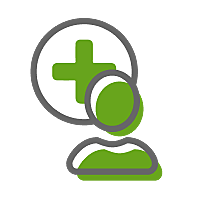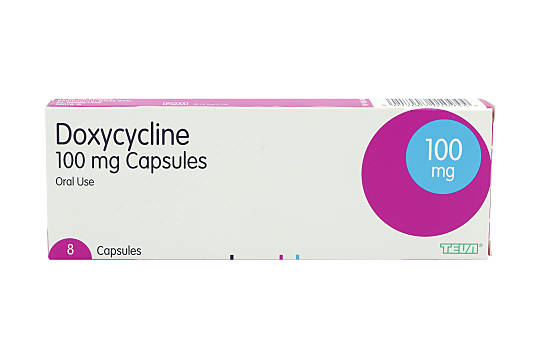Chlamydia Treatment
Order chlamydia treatment with free and discreet delivery.
Prices from £14.99
Simply fill in a brief questionnaire. One of our doctors will review your order and prescribe a suitable treatment. How to Order
Chlamydia is treated with medications called antibiotics that kill bacteria in the body. The two antibiotics usually used to treat chlamydia are doxycycline and azithromycin. Sometimes your doctor may prescribe a different antibiotic for you depending on your medical history and general health.
If you are worried about chlamydia or think you may have chlamydia symptoms, our service allows you to get a prescription for your chosen treatment, quickly and easily.
Not sure which medication is right for you? Read more about chlamydia treatment at the bottom of this page or message one of our doctors for free. Just create an account to send a secure message.
Why choose us?
- Your order is reviewed by a doctor to make sure the treatment is right for you
- Private and discreet service with no need to leave your home
- Free delivery in discreet packaging, right to your door
- Free aftercare with your online account
In stock. Prices from £14.99
In stock. Prices from £27.50
In stock. Prices from £31.50

No results found.
Please check your spelling or try another treatment name.



Chlamydia treatment
-
-
Chlamydia trachomatis is a bacterial infection that is spread by semen and vaginal fluids during sexual contact. You can also pass chlamydia to your unborn baby. It can be spread through:
- unprotected vaginal, oral, or anal sex
- sharing sex toys without washing or covering with a new condom
- genital to genital contact (even without penetration or ejaculation)
- from mother to baby during pregnancy or childbirth
Chlamydia is the most common sexually transmitted infection (STI) in the UK, particularly among people under the age of 25. Chlamydia itself is not usually serious and is normally easily treated with antibiotics, but if left untreated it can lead to serious complications. Complications from untreated chlamydia infections in women include:
- pelvic inflammatory disease (PID) (an infection of the womb, fallopian tubes, and ovaries) PID can lead to a higher risk of ectopic pregnancy (when the foetus grows outside the womb) and infertility (problems getting pregnant).
- problems in pregnancy. Chlamydia can be passed to a baby during birth, and can make it more likely for a baby to be born early.
Complications of untreated chlamydia in men are less common, but include:
- epididymitis or epididymo-orchitis (inflammation of the testicles)
Untreated chlamydia can also cause a condition known as reactive arthritis (inflammation of the joints) in both men and women.
-
-
Chlamydia often has no symptoms, and most people infected with chlamydia don’t know they have it. In women symptoms may include:
- pain when passing urine (peeing)
- discharge from your vagina or rectum (bottom)
- abdominal (tummy) or pelvic pain
- bleeding after sex
- bleeding or spotting between periods
Pelvic pain, pain when having sex and unexpected bleeding are possible symptoms of PID, a more severe infection. If you have these symptoms you should see a doctor in person so they can examine you and start treatment as soon as possible.
In men, symptoms may include:
- pain when passing urine (peeing)
- discharge from your penis
- pain and swelling in the testicles
Because chlamydia often has no symptoms it is recommended that sexually active adults and teenagers under the age of 25 have a yearly test to screen for chlamydia. You should also get tested for chlamydia if you have unprotected sex with a new partner. Regular chlamydia screening can help prevent the spread of the infection, ensure early diagnosis and treatment, and prevent long term complications. It's a good idea to get tested for other sexually transmitted diseases, such as gonorrhoea and herpes at the same time.
The test for chlamydia is free and confidential and can be done by your GP, sexual health, or genitourinary (GUM) clinic. There are also home testing kits for chlamydia that you can order online, do yourself at home, and return by post. For men, the test for chlamydia is either a urine test or a swab from the urethra, and for women, either a urine test or a swab from the vagina.
-
-
Chlamydia is treated with medications called antibiotics that kill bacteria in the body. The two antibiotics usually used to treat chlamydia are doxycycline and azithromycin. Sometimes your doctor may prescribe a different antibiotic for you depending on your medical history and general health.
Doxycycline
Doxycycline is an oral antibiotic. It is also available under the brand names Vibramycin-D, Efracea, and Periostat. It comes in tablets or capsules that should be swallowed whole with a large glass (at least 150ml) of water, with or after food. It is also available as dispersible tablets that dissolve in water. For chlamydia treatment, the normal dose is one tablet or capsule twice a day, twelve hours apart.
It's important to stay upright, in a sitting or standing position when you take doxycycline, and for half an hour afterwards. This is to prevent the medication from irritating your oesophagus (food pipe) and stomach. You should not have sex, including vaginal, anal, or oral sex, even with a condom until you and your partner have finished treatment.
-
-
Sometimes the medications used to treat chlamydia can cause side effects. Most side effects are not serious, but if you are worried about side effects, or if they do not go away, talk to your doctor, pharmacist, or healthcare provider. Common side effects of chlamydia treatment include:
- headaches
- nausea (feeling sick)
- vomiting (being sick)
- photosensitivity (your skin may become more sensitive to sunlight)
- candida infection (thrush) in women
Rarely, serious side effects can occur. These include:
- unexplained bruising or bleeding
- nosebleeds
- fever (high temperature)
- fatigue (feeling tired)
- diarrhoea (may contain blood) and stomach pain
- tinnitus (ringing in the ears)
- yellowing of the skin or the whites of the eyes (jaundice)
- pale coloured poo
- dark coloured pee
- muscle or joint pain
- severe or prolonged headaches
- vomiting
- changes to your vision (eyesight)
- sore throat or pain when swallowing
- indigestion
- swelling of the lips, mouth, and tongue
- separation of your nails from the nail bed (photo-onycholysis)
If you experience any of the above side effects, stop taking your medication and seek medical attention immediately.
Very rarely the antibiotics used to treat chlamydia can cause a severe allergic reaction called anaphylaxis. Symptoms of anaphylaxis include:
- itchy, red, raised bumps or spots on the skin (hives)
- difficulty breathing
- feeling dizzy or faint
- rapid heartbeat
- swelling of the eyes, tongue, lips, and throat
Anaphylaxis is a medical emergency and can get worse very quickly. If you experience any of the above symptoms seek immediate medical treatment.
-
-
Chlamydia treatment is highly effective and cures around 96% of chlamydia infections when taken correctly. Most people would not need to have any further tests as long as their symptoms have cleared up. If you do want to take a test to be sure, you should wait for 6 weeks after you finish your treatment to test again, because the test can stay positive for this amount of time.
However, reinfection with chlamydia is common, especially for people under the age of 25. Because of this, it is recommended that anyone under the age of 25 who tests positive for chlamydia has a repeat test 3 to 6 months after finishing treatment.
-
-
No. Chlamydia will not go away on its own and may lead to serious health issues, particularly in women. If you are worried about chlamydia it’s quick and easy to get tested and start any necessary treatment right away.

Dr Kathryn Basford is a qualified GP who works as a GP in London, as well as with ZAVA. She graduated from the University of Manchester and completed her GP training through Whipps Cross Hospital in London.
Meet our doctorsLast reviewed: 28 Feb 2022
-
Chlamydia, NHS [accessed February 2022]
-
Patient information leaflet for treatment of chlamydia with doxycycline, NHS Oxford Health Foundation Trust [accessed February 2022]
-
Doxycycline capsules 100mg, Summary of Product Characteristics, EMC [accessed February 2022 ]
-
Azithromycin 500mg Film-coated tablets, Summary of Product Characteristics, EMC[accessed February 2022]
-
National Chlamydia Coalition, Why do I need to retest after treatment? [accessed February 2022]


GMC: 7074021

GMC: 6149061

GMC: 7085115










